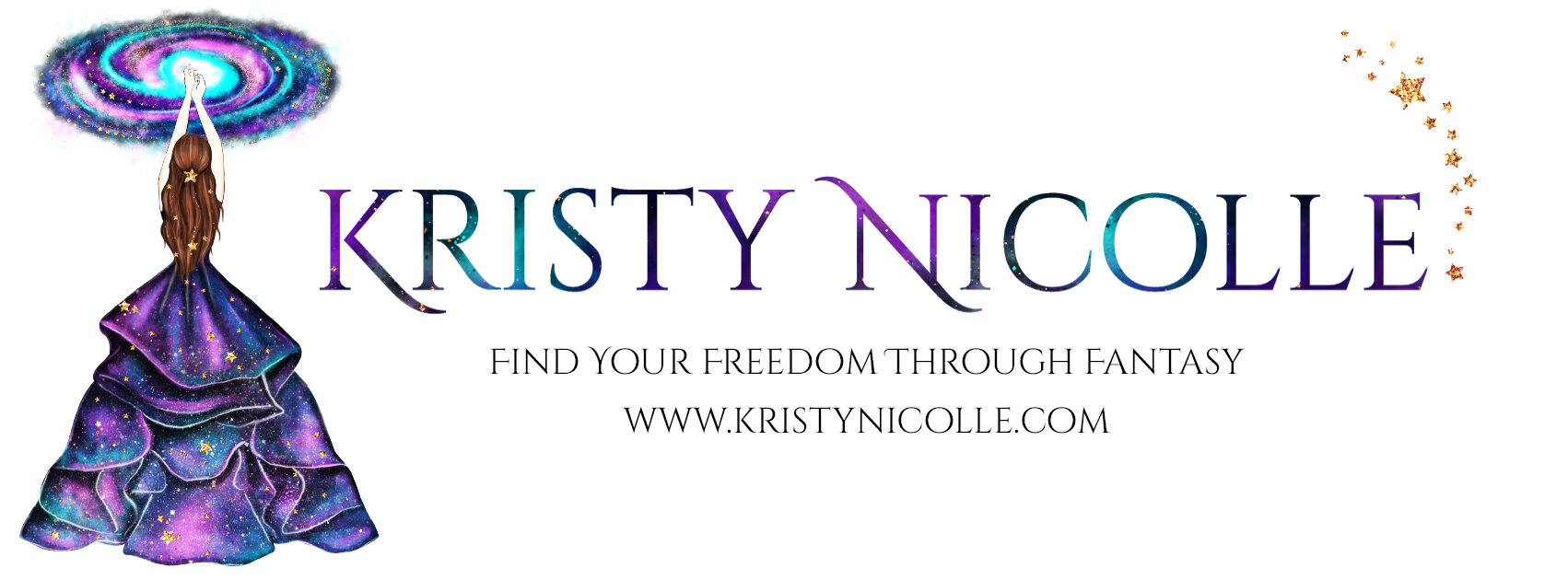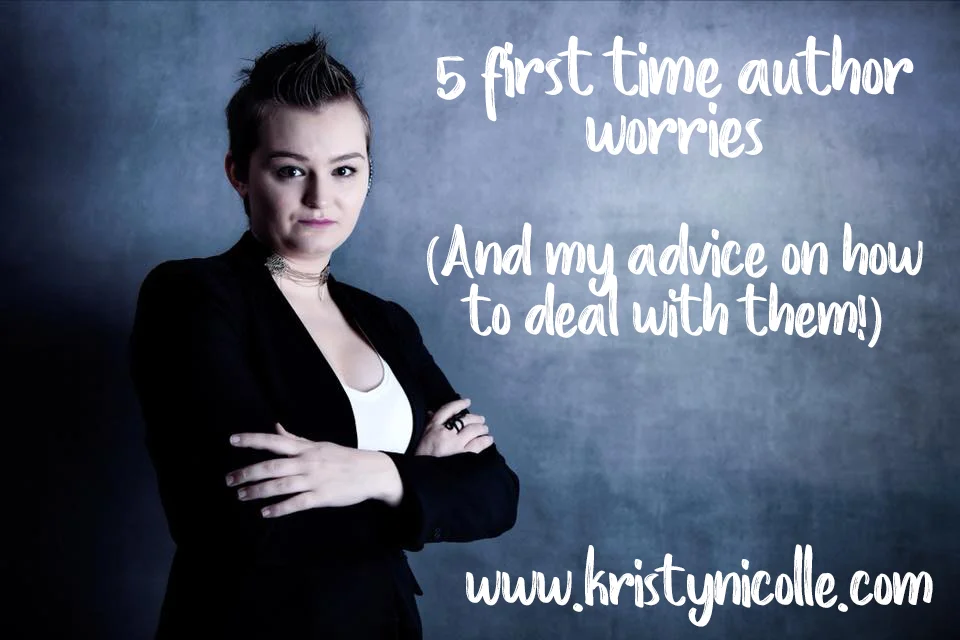5 First Time Author Worries (And my advice on how to deal with them!)
5 first time author worries
(And my advice on how to deal with them!)
Introduction
It seems that not a day goes by when I don’t have someone messaging me for writing or publishing advice on social media. Honestly, I feel lucky to be in a position of trust where so many people feel they can ask me, and also that they trust that I know what I’m talking about. After ten books in just three years and over a million and a half words published, you’d think I have it all figured out, but as most authors will tell you, I’m still learning, and I will be for the rest of my career.
However, it is interesting to me that the concerns I’m hearing from new and unpublished fledgling authors are almost always the same. I thought, in light of this, I’d give you my advice and opinion on five commonly asked first time author worries, because honestly writing a book is hard, and when you’ve written ‘The End’ and think you’re just about done, the thing most people don’t realise is that the hard work is only just beginning.
So, let’s begin…
1) It’s all been said before.
Many people begin writing their first book in an organic way. That means they fall in love with the story or characters in their heads, and feel compelled to write it down, rather than constructing a plot around current market trends and popular niche genres. This being said, it comes as a shock to many when they discover that their story is not all as unique as they originally thought. Many believe their vampire romance novel is as unique as can be, only to discover many authors have similar plots, characters, and even settings.
I hear this concern from authors a lot-
I thought it was unique, but now I have discovered it’s been done before. I don’t want people to think I’ve copied (insert NYT Bestselling author here). Now I’m going to have to start all over again!
Back. The. Heck. UP.
So, here’s the thing. As much as most authors want to believe they are one of a kind, no plot you ever come up with will be one hundred percent unique. If you feel like it’s been said before, that’s because it has. The most famous stories, the most well-loved authors, have written stories that follow character arcs and plot outlines that have been done millions of times before. Mainly, this is because the human psyche responds to these stories, so… well in short… they sell.
The important thing to remember about this is that it has all been said before. No matter what genre you’re in, odds are there’s a story out there kind of like yours, if not damn near your exact plot with a few extraneous details thrown in for colour.
However, don’t fret.
The important thing here isn’t that the story has never been told, but that the story has never been told by YOU. Each writer has a unique style, a unique voice that separates them from every other. It’s not about the story, so much as how you present it. What vocabulary you use, your tone, aesthetic, sentence metre etc etc.
You might never have a completely original plot, but nobody will ever have your voice, so sit back, relax, and tell the story you want to tell.
Pro Tip- What’s even better, if you are writing a popular niche like mermaids, vampires, reverse harem etc, use the other novels like yours to help you locate and sell to your ideal reader!
2) Publishing seems so overwhelming, where do I start?
The answer to this for me is simple. Start with writing.
Write.
Get your ass in the chair and make words until you have something worth publishing.
I know many first-time writers who get so caught up in working on covers, building author platforms, finding an editor, or marketing, they forget that what lies at the core of it all is the writing. Don’t worry about any of the publishing work until you actually have something worth publishing.
The amount of authors I know who get fired up as all hell and then after three weeks of running around looking at premade covers and pricing up editors realise they have nothing to actually publish is alarming. The best way to make sure you get that first novel finished is to put aside everything else until at least the first draft is complete. Buying covers, marketing, and setting up author pages on facebook take time and can distract you from your goal of finishing your book, as well as the fact that by announcing your intentions to publish on social media you’re adding a world of pressure onto yourself as you go through the book writing process for the very first time.
Keep things quiet, hustle until it’s done, and then once you have that first draft in hand then worry about what to do with it. The goal for any first-time author should be to finish the first draft, because realistically this is where probably 90% of aspiring authors fall down, and honestly it is only the very first hurdle.
So, I say it again.
Ass in chair.
Write the words.
The rest will come.
3) How do you deal with negative feedback?
One of two ways.
You either acknowledge the criticism as useful, and take what’s being said on board. You can do this by implementing changes in future manuscripts or making changes to a book about to published.
Or
You acknowledge the critique as personal opinion and decide to let it roll off you. This kind of critique usually comes from someone who is not your ideal reader.
No negative feedback should ever stop you from writing if it’s what you love to do. Nobody will ever write a book that pleases everyone, even if it does become a bestseller! Critique is a part of the job, so developing a thick skin is key, but so is knowing when to take the critique seriously and implement the changes suggested. You can never please everyone, and no book will ever be perfect. All you can do is keep moving forward and try to make each new book better than the last.
4) There’s so much conflicting writing advice, which sources should I trust?
This is a difficult one, but I think my best advice is to read widely and see what comes up consistently. Also, please remember that not all writing advice works for every genre, style, or story. I think it’s easy with the amount of content out there on topics like this one these days to get hung up on if you’re doing it right or not, but honestly the only way to get better at writing is to do it, not just read about it. Master the rules that are widely accepted as common practice or praised and implemented by authors who you idolise and wish to emulate, and then break them when you deem necessary.
Only you know what is right for your characters and story, so make sure you always stay true to writer’s voice, no matter what rules you might be breaking.
After all, who says art has to follow the rules, right?
5) What do I do if my first book doesn’t sell well?
This one is simple.
Start your next book.
Very rarely do first time authors hit it big, and those who do are an anomaly, not the norm. A lot of people go into author life expecting movie deals, a merchandise line, and instant fame simply by putting their title up on amazon. Being a writer is one of those careers where it takes a while to build a reputation as a storyteller and wordsmith, to find readers, to develop a style, and find the right genre. Your first book might not fly off the virtual shelves, but it’s also important to remember that this novel will continue to serve you for maybe the next 60 years. Even if a book doesn’t immediately take off, that doesn’t mean it won’t pick up in sales someday. It’s also a learning curve, so assessing your first release and looking at what you might do differently next time can be a valuable tool. Many authors I know have re-covered, re-titled, or even re-released titles at a later date after building a solid readership and marketing plan. That is the beauty of self-publishing, you can give your book a second, third, or even fourth chance at release success, even if that is years down the road from your original launch. So, don’t be discouraged if your sales aren’t right where you want them to be right away, simply brush yourself off and keep moving forward.
After all, the more books you have available, the easier you are to discover in the vastness that is amazon and other online retailers, so the more likely you are to make sales on not only your latest title, but your back list as well.
Conclusion
Here endeth the lesson.
Neat, right?
I hope this answered some of your first-time author questions, or gave you insight into questions you hadn’t yet thought about on your journey to first time publishing! Writing and publishing is hard, but it’s also amazing, and I couldn’t imagine my life without it.
Don’t forget- keep writing!
Kristy Nicolle x











The Cover Reveal for my debut tarot-inspired poetry collection I AM ARCANA